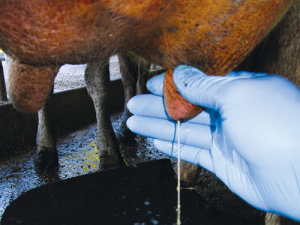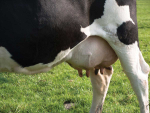‘The benefit of extended therapy for mastitis: myth or fact?’ was the topic at the third global milk quality expert forum.
The forum, organised by global animal health company Boehringer Ingelheim, was held on January 16-17 in Barcelona.
Fifteen milk quality experts attended from 13 countries.
Boehringer Ingelheim says scientific data shows that extended antibiotic treatment of Streptococcus uberis and Staphylococcus aureus mastitis significantly increases clinical and bacteriological cure rates. However, extended therapy also has its limitations. While risk factors (e.g. age of cow, number of colonies, somatic cell count) need to be taken into account, the added costs of labour, antibiotics and an increased milk withdrawal time might not balance out the gain obtained with cure.
But most importantly, participants agreed that extended treatment cannot be considered judicious use of antibiotics if used as blanket treatment of all clinical or subclinical mastitis cases, and should only be implemented case by case.
What is the aim of treating mastitis: a bacteriological cure or prevention of recurrence? According to unpublished data, 43% of all clinical mastitis cases are recurrent. And of all recurrent cases, only 10% are ‘true’ persistent infections with the same strain, suggesting that tissue damage, genetic predisposition and environmental factors play an important role. Mastitis treatment should therefore focus on prevention and thorough treatment of first-occurrence cases. Results of a study showed that intensive treatment of first-time mastitis cases may help prevent recurrence.
DNA sequencing of milk shows that healthy quarters have a greater microbial diversity than quarters with clinical mastitis. Milk is full of bacterial organisms, of which many anaerobic organisms don’t appear on normal culture. However, pathogens such as Escherichia coli and Klebsiella spp. were only found in the milk microbiome if they showed up on conventional aerobic culture.
On the other hand, S. uberis seems to be part of the healthy microbiome, and was present in small quantities in all culture-negative mastitis samples. Intramammary treatment studies with a broad-spectrum antibiotic showed no real impact on microbial diversity of the microbiome. The hypothesis was raised that narrow-spectrum treatment may lead to a microbiome imbalance, thus indirectly contributing to mastitis.
A medical doctor presented data on mastitis treatment in women, for which standard antibiotic treatment is usually prescribed for 10-14 days – much longer than the so-called ‘extended’ veterinary treatment. In spite of the lack of evidence for the length of treatment, the message to the general public usually is to ‘finish the course of antibiotics to avoid antimicrobial resistance’.
Managing the farmer's fears
Since human behaviour and perception is an important parameter to take into account, the group also discussed communication of scientific evidence to farmers.
It was suggested that, as farmers are often unsure about the effect of treatment, they may consider extended antibiotic treatment as ‘good stockmanship’.
And if the evidence, e.g. the veterinarian’s scientific advice, is at odds with their own experience, they will disregard the advice.
Farmers prefer to treat as long as symptoms are visible – ‘better safe than sorry’. Communication on effective treatment is essential, and veterinarians should learn to manage the farmer’s fears rather than facts.


















